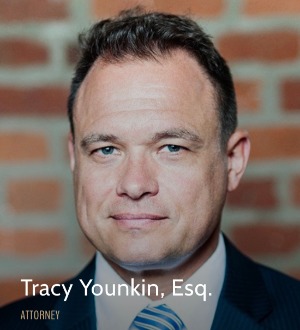My employer told me I’m not entitled to overtime pay because I am an “exempt” employee. What does this mean, and how can I challenge this? Does this comply with Ohio Overtime Laws?
Picture this: You pick up some extra hours at work and ask your employer if you’ll receive overtime for your extra efforts. You are told you’re not entitled to overtime because you are an “exempt” employee. What does this mean, and how can you tell whether your employer is allowed to do this? Our Ohio Overtime Lawyers walk you through the different types of exempt employees under the FLSA and Ohio Wage Laws and what your employer must prove to claim these exemptions.
Under the Fair Labor Standards Act (“FLSA”), most employees must be paid at least minimum wage for all hours worked. They must also be paid overtime, at time-and-one-half their regular hourly rate, for hours worked in excess of 40 per workweek. However, certain employees employed in bona fide executive, administrative, professional, outside sales, and some computer roles are “exempted” from these minimum wage and overtime requirements. Employees that are considered “highly compensated,” who make more than $107,432.00 per year, are also exempt from these requirements if they perform at least one of the duties of a bona fide executive, administrative, or professional employee.
Before your employer can claim you are “exempt” from overtime and minimum wage requirements, they must prove you meet certain requirements regarding your job duties and pay structure. If your employer claims you are employed in an executive, administrative, or professional capacity, they must prove your position meets both the “salary basis” test and the “duties” test. If your position does not meet any part of either test, you may have been misclassified as an exempt employee, and you may be owed wages.
Due to new changes in Ohio Overtime Laws, the threshold to meet the Salary Basis test has increased. Now, an employee must be paid on a salary basis of no less than $684 per week. This means the employee must receive the same, predetermined amount each pay period, regardless of the quantity or quality of work performed. Subject to a few exceptions, employees must receive their full salary each pay period, regardless of the number of days or hours worked.
The FLSA Duties Test
The duties test differs depending on whether your employer claims you are employed in an executive, administrative, professional, or outside sales role. The tests for each of these exemptions are discussed in detail below.
The Executive Exemption
An employee meets the requirements of the executive exemption if all of the following are true:
- The employee is paid on a salary basis (see Salary Basis test requirements above);
- The employee’s primary job duty is the management of the business or department within the business;
- Management duties include: interviewing, selecting, and training employees, setting employee rates of pay or hours, supervising and reviewing the work of employees, assigning work, conducting performance reviews, handling employee discipline, and controlling the budget, among other things
- The employee customarily and regularly directs the work of at least two full-time employees or their equivalent; and
- The employee manages “the equivalent” of one full-time employee if he manages two part-time employees. Thus, if you supervise one full-time and two part-time employees, this part of the test is met
- The employee has authority to hire and fire employees, or their suggestions as to hiring and firing are given particular weight.
- This requirement is easily met if the hiring and firing of employees is part of your job duties, but it is also met if you are regularly asked for your opinion on hiring and firing decisions
If you are a business owner (defined as someone owning at least a 20% equity interest in the business), you are also exempt under the executive exemption.
The Administrative Exemption
An employee meets the requirements of the administrative exemption if all the following are true:
- The employee is paid on a salary basis (see Salary Basis test requirements above);
- The employee’s primary duty is the performance of office or other non-manual work directly related to the management or general business operations of the employer or its customers; and
- Your “primary,” or most important, duty is directly related to the management or general business operations of your employer or its customers if you work in areas such as: tax, accounting, financing, insurance, quality control, advertising and marketing, research, HR, legal and compliance, or if you act as an adviser to your employer’s clients, among other things
- Job duties that do NOT meet this requirement include working on a manufacturing line or selling a product in a retail business, for example
- The employee’s primary duty includes the exercise of discretion and independent judgment with respect to matters of significance.
- An employee exercises “discretion and independent judgment” if they have the authority to independently make decisions on behalf of the business. This includes the ability to make decision such as: making or implementing workplace policies, completing major assignments for the business, or binding the business to a significant financial commitment
- Even if the employee has the authority to make decisions on behalf of the business, these decisions must be about matters of significance. This means the decision must be important to the overall work performed by the company
- This does NOT always include situations where the employer could lose money if the employee fails to perform the job properly
Whether an employee exercises “discretion and independent judgment” over “matters of significance” is a very fact-specific question that requires a thorough review of the employee’s job duties and responsibilities.
The Professional Exemption
The professional exemption can be broken down into two categories; learned professionals, and creative professionals. The requirements for both these exemptions are discussed below.
Learned Professional
An employee meets the requirements of the learned professional exemption if all the following are true:
- The employee is paid on a salary basis (see Salary Basis test requirements above);
- The employee’s primary duty is the performance of work requiring advanced knowledge, defined as work which is predominantly intellectual in character and which includes work requiring consistent exercise of discretion and judgment;
- Work requires “advanced knowledge” when an employee needs to use specialized knowledge to analyze and solve problems. It does NOT include performing manual or physical work
- The employee’s advanced knowledge must be in a field of science or learning; and
- These fields include law, medicine, accounting and finance, and engineering, among others
- The advanced knowledge the employee possesses must be customarily acquired by a prolonged course of specialized intellectual instruction.
- The employee must typically need to have a special academic degree as a prerequisite for entering the field (rather than learning the trade through on-the-job experience) to meet this requirement
If an employee has a valid license and actively practices law or medicine, he or she will be exempt under the learned professional exemption, and the salary basis test does not apply to them.
Creative Professional
An employee meets the requirements of the creative professional exemption if all the following are true:
- The employee is paid on a salary basis (see Salary Basis test requirements above);
- The employee’s primary duty is the performance of work requiring invention, imagination, originality or talent in a recognized field of artistic or creative endeavor (such as works by musicians, artists, actors, or authors)
The Outside Sales Exemption
The outside sales exemption, unlike other exemptions, does NOT require employers to meet the salary basis test. Instead, the employee meets the requirements of the outside sales exemption if all the following are true:
- The employee’s primary duty is making sales, obtaining orders or contracts for services or use of facilities that will be paid for by the client or customer; and
- The employee is customarily and regularly engaged away from the employer’s place of business.
- This means the employee must sell their product or service at the customer’s business or home. This does NOT include situations where an employee works from home, as an employee’s home is still considered part of the employer’s place of business.
Certain computer programming and engineering employees are also exempt from the minimum wage and overtime provisions of the FLSA, but these situations are highly dependent upon the specific type of computer-based work the employee performs. Ohio Overtime Laws and the FLSA can be very complex. You should reach out for a free consultation to learn more about if your position falls under this exemption.
Remember, whether an employee is exempt from the minimum wage and overtime requirements of the FLSA is not decided merely by an employee’s job title. A thorough review of your specific job duties and pay structure is required to determine whether your employer has met all the required elements to claim you are an exempt employee. If you believe you have been misclassified as an exempt employee, or if you have other questions about your wages or employment, please reach out for a free consultation.





























